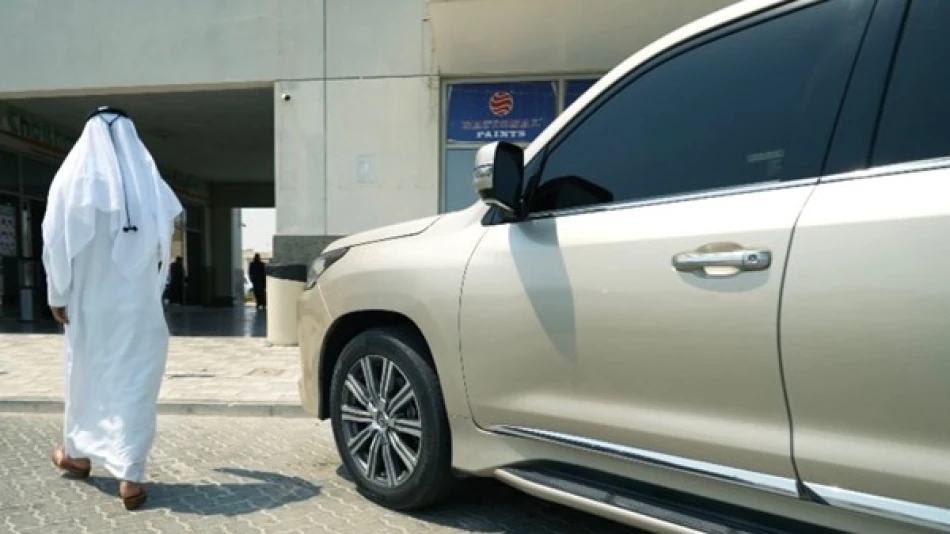
Abu Dhabi Police Caution Drivers: Leaving Vehicles Running Poses Serious Risks
Abu Dhabi Police Warn Against Engine-Running Vehicles as Theft Risk Surges
Abu Dhabi Police have issued a stark warning to drivers about leaving their vehicles running while making quick stops, citing a growing threat from opportunistic thieves targeting unattended cars during routine activities like shopping, refueling, or prayer visits. The advisory highlights a concerning trend that puts both personal property and community safety at risk.
The Growing Threat of Opportunistic Vehicle Theft
The police warning specifically addresses drivers who leave their engines running during brief stops for essential activities, including visits to ATMs, fuel stations, shopping centers, and mosques. This practice, while convenient in the UAE's extreme heat, creates prime opportunities for what law enforcement describes as "weak-minded individuals" seeking easy targets.
The timing of this warning suggests vehicle theft incidents may be increasing in the emirate, reflecting broader regional trends where economic pressures and population growth have contributed to rising property crimes in urban centers across the Gulf.
Regional Context and Security Implications
UAE's Evolving Crime Landscape
This advisory comes as the UAE continues to experience rapid population growth and urbanization, factors that typically correlate with increased property crime rates. Unlike neighboring countries where vehicle theft often involves sophisticated operations, Abu Dhabi's warning focuses on crimes of opportunity—suggesting a shift toward more spontaneous criminal activity.
The emphasis on community cooperation mirrors successful crime prevention strategies implemented in Singapore and other Gulf states, where public awareness campaigns have proven more effective than purely punitive measures.
Economic and Social Factors
The warning arrives during a period of economic adjustment across the region, where inflation and cost-of-living pressures may be driving some individuals toward opportunistic crimes. The specific mention of targeting vehicles during prayer times also reflects the unique cultural context of the UAE, where religious observance creates predictable patterns that criminals might exploit.
Implications for Residents and Businesses
Insurance and Liability Concerns
For vehicle owners, this warning carries significant financial implications beyond the immediate risk of theft. Most comprehensive insurance policies in the UAE include clauses that may void coverage for vehicles stolen while running and unattended, potentially leaving owners responsible for substantial losses.
The advisory also suggests that businesses—particularly fuel stations, shopping centers, and financial institutions—may need to enhance their security measures and customer awareness programs to reduce liability risks.
Technology Solutions on the Horizon
The warning highlights a gap that emerging automotive technology could address. Modern vehicles increasingly feature remote start systems, smartphone integration, and proximity-based security that could allow drivers to maintain climate control without the theft risks associated with traditional key-in-ignition practices.
Community Policing Strategy
Abu Dhabi Police's emphasis on community cooperation reflects a broader shift toward preventive policing strategies across the UAE. By encouraging residents to report suspicious activities and maintain awareness of traffic laws, authorities are building a collaborative security framework that extends beyond traditional law enforcement.
This approach has proven successful in other emirates, where community engagement has contributed to the UAE's ranking among the world's safest countries. The strategy also aligns with the nation's broader vision of creating smart, secure cities that leverage both technology and social cooperation.
The warning serves as a reminder that even in one of the world's safest regions, basic security precautions remain essential for protecting personal property and maintaining community safety standards.
Most Viewed News

 Layla Al Mansoori
Layla Al Mansoori






